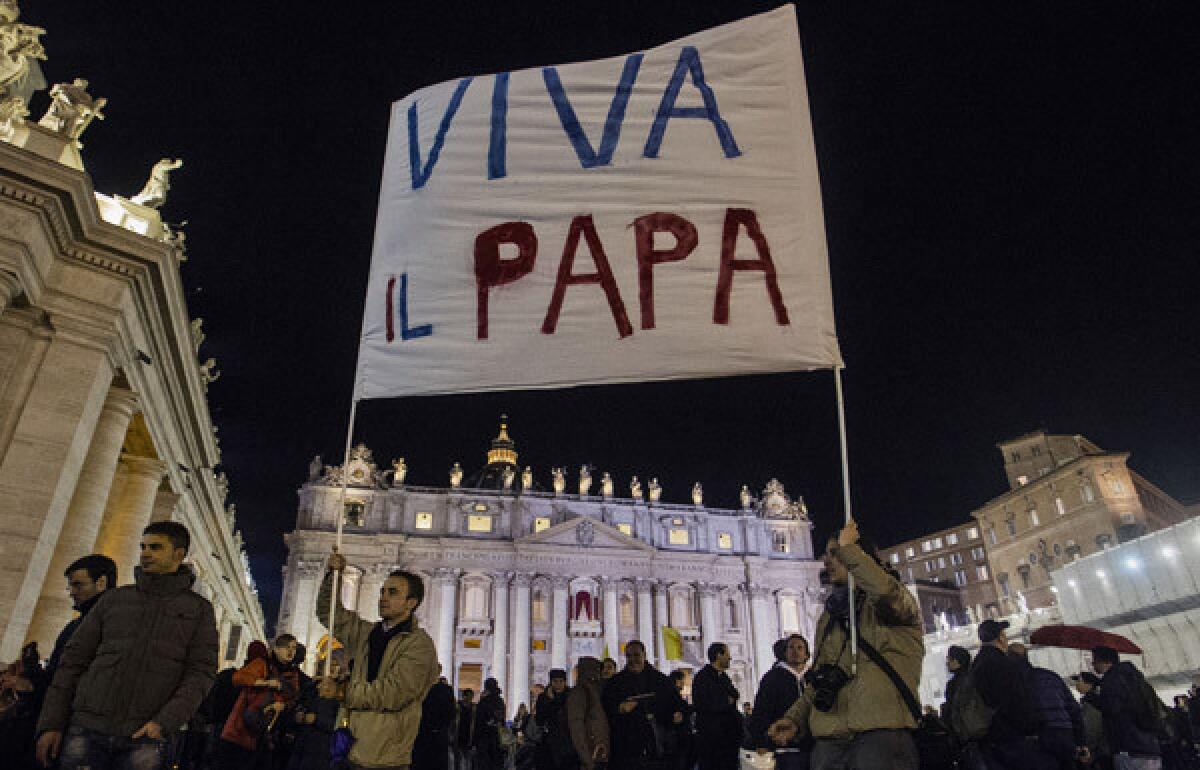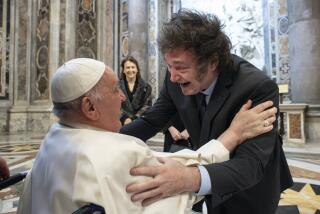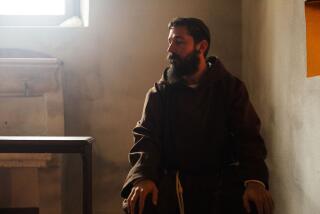Why does the pope change his name? Why ‘Francis’?

What’s in a pope’s name?
By choosing the name Francis, the Argentine Jesuit who will lead the world’s 1.2 billion Roman Catholics has signaled a devotion to simple living and social justice, analysts say.
No pope has ever chosen to be called Francis before, and it was not among the names favored by oddsmakers betting on which the new pontiff would choose. The name harks back to St. Francis of Assisi, who founded the Franciscan order.
Picking a name is the first decision made by the new pontiff and a closely watched sign of how he will lead the church.
Popes were once known by their first names; the first pope who changed his name was John II (533-535), who shed the name Mercurious because of its pagan roots. The practice did not become common until centuries later.
Benedict XVI, 85, whose resignation led to Francis’ election, said he took the name to link himself to Benedict XV, “who guided the church through the turbulent times of the First World War.”
The German-born ex-pontiff also cited St. Benedict of Norcia, “a fundamental point of reference for the unity of Europe,” the Catholic News Agency reported.
So what meaning might be taken by Jorge Bergoglio’s selection of Francis?
The Catholic Encyclopedia writes that St. Francis of Assisi is a beloved figure even among those “who care little about the order he founded.... This unique position Francis doubtless owes in no small measure to his singularly lovable and winsome personality.”
FULL COVERAGE: Election of Pope Francis
The saint renounced worldly goods and lived in poverty.
“The brothers must be careful not to accept any churches, poor dwellings, or anything else constructed for them unless these buildings reflect the holy poverty promised by us in the rule,” St. Francis of Assisi said in his “Testament,” dictated before his death. “We should always live in these places as strangers and pilgrims.”
That spirit seems to suit the new pope: As a cardinal in Argentina, Pope Francis was known for his personal austerity, eschewing the church mansion and taking public transportation around Buenos Aires, according to the Associated Press.
“The fact that he lives such a simple lifestyle himself suggests he appreciates the simplicity and humility that Francis of Assisi has embodied for many people,” said Cecil M. Robeck Jr., professor of church history and ecumenics at Fuller Theological Seminary.
Choosing to be called Francis means the new pope “wanted to send a message of simplicity and not grandeur to the world about the papacy,” added Chester Gillis, theologian and dean at Georgetown University. “The Franciscans have devoted themselves to the poor, and he’s been living in a place where there’s wealth but a lot of poverty as well.... This is a sign of being on the side of the poor.”
Without yet hearing from the new pope about the name, Robeck argued it could also evoke the Jesuit missionary St. Francis Xavier, which would make sense in light of his status as the first Jesuit pope.
The last pope who chose a name never before used was John Paul I (1978), though his name was a conjunction of two familiar names for pontiffs.
ALSO:
Cardinal Bergoglio chosen as new pope
Trend of older pontiffs continues with Pope Francis, 76
Pope Francis: First tweet is “HABEMUS PAPAM FRANCISCUM”
More to Read
Sign up for Essential California
The most important California stories and recommendations in your inbox every morning.
You may occasionally receive promotional content from the Los Angeles Times.










